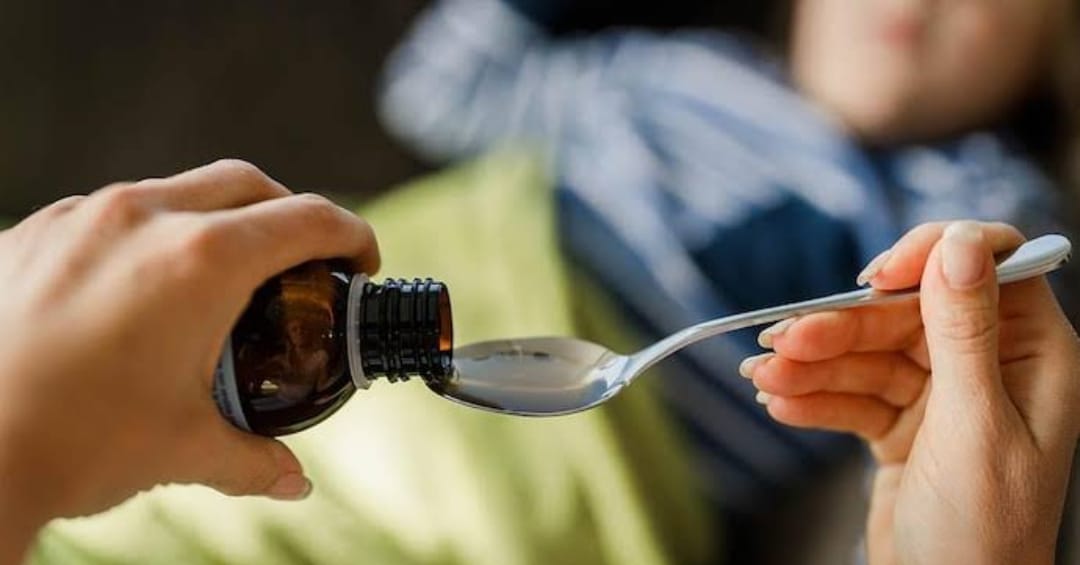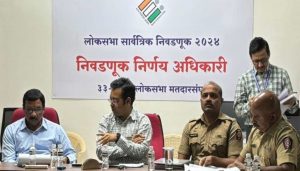Drugs Controller General Urges Warning on Cough Syrups for Infant Use

New Delhi, 21st December 2023: Dr. Rajeev Singh Raghuvanshi, the Drugs Controller General (India), has issued a directive to drugs controllers across all states and union territories, urging them to update the package insert and promotional literature of the Fixed Dose Combination (FDC) of Chlorpheniramine Maleate IP 2mg + Phenylephrine HCI IP 5mg drop/ml.
The FDC in question was previously deemed rational by the Prof. Kokate committee, leading to the issuance of a No Objection Certificate (NOC) for continued manufacturing and marketing on July 17, 2015, under the 18-month policy decision.
However, recent concerns have arisen regarding the promotion of this unapproved anti-cold drug formulation for infants. The matter underwent thorough deliberation during the Subject Expert Committee (SEC- Pulmonary) meeting on June 6, 2023. The committee discussed the use of the FDC of Chlorpheniramine Maleate IP 2mg + Phenylephrine HCI IP 5mg dropimt and recommended that it should not be used in children below 4 years of age. The committee further suggested that manufacturers should prominently feature a warning to this effect on both the label and package insert.
The Drugs Controller General has taken the SEC’s recommendations into consideration and is now requesting all relevant authorities to direct manufacturers under their jurisdiction to include the warning “FDC should not be used in children below 4 years of age” on the label, package insert, and promotional literature of the drug.
“Manufacturers are urged to take immediate action in this regard, and any steps taken should be promptly communicated to the Drugs Controller General’s office”, the letter states.
The World Health Organization (WHO) has expressed concern over the widespread use of over-the-counter drugs for treating children. The Drugs Controller General of India (DCGI) has similarly voiced apprehension regarding the use of unapproved drug formulas for treating cold and cough in small children. WHO advises against the use of over-the-counter medicines for cold and cough in children under 5 years of age. Over-the-counter drugs are medications purchased directly from medical stores without the need for medical advice.
In the country, 12 children died, and 4 became disabled due to the consumption of cough syrup. DCGI officials revealed that in 2019, 12 children lost their lives due to the consumption of locally manufactured cough syrup, and four other children experienced serious physical problems. Consequently, India mandated the testing of exported cough syrup from June 2023, and safety standards for cough syrup were tightened. However, companies whose cough syrup was implicated in the deaths of children denied any negligence.
Media reports indicate that instructions have been issued to specify the quantity of Chlorpheniramine Maleate and Phenylephrine medicines in the brands of these companies.
Furthermore, several countries worldwide reported child fatalities attributed to medicines manufactured in India. In 2022, 70 children were reportedly killed in Gambia due to four syrups from Maiden Pharma. All the children were under 5 years of age, and the cause of death was attributed to kidney injury. The Gambia government investigation concluded that these deaths were caused by medicines from an Indian company, with similar symptoms observed in all cases.
Similarly, the Uzbekistan government alleged that 18 children in their country died due to cough syrup manufactured in India. The Uzbek Health Ministry claimed that children died after consuming cough syrup DOK-1 MAX produced by Merian Biotech in Noida.
Controversies surrounding cough syrup made by Indian companies were also highlighted in related news, including the Special Task Force’s clearance of an Indian drug company accused of causing the death of 70 children in Gambia. Maiden Pharma, accused in this case, received a clean chit as samples of its four syrups met the quality standards in a government lab test conducted in July.
In another instance, 66 children reportedly lost their lives while trying to enhance the taste of cough syrup in Gambia. An alert was issued regarding four cough syrups manufactured by an Indian pharmaceutical company in December last year. WHO emphasized that these products did not meet standards, posing serious risks, especially in children, with potential for severe problems or even death.








